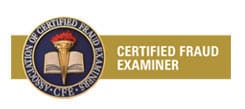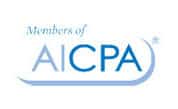Personally Identifiable Information (PII) Security Threats
In today’s era of computer espionage and high-tech identity theft, all businesses, governmental agencies, and private citizens should be aware that there may be bad people after private information. As a forensic accountant and private investigator, I know that once your sensitive and private information is discovered by a fraudster, your life and business can become very difficult. If you don’t have proper identity theft safeguards and internal controls in place, read on. My goal is to encourage you to become more aware and proactive in changing some of your standard business practices so you don’t need to hire a forensic accountant or private investigator to clean up the damage from identity theft. Background searches, computer forensics, and forensic accounting investigations that will determine who and how your bank accounts have been depleted are time consuming and costly.
Thieves are after your bank statements, PINs, credit card numbers, and personal identifiers like: birthday, city of birth, mother’s maiden name, children’s names, pet’s names, favorite numbers, etc…in order to determine your passwords and/or PINs. If the wrong person gains access to this information, they can wreak havoc on your business and personal bank accounts, investment accounts, and destroy your credit score. In other words, they could turn your life upside down and possibly force you and your company to financial hardship. A forensic accountant, fraud examiner, or financially-savvy private investigator can assist with implementing controls to deter this from happening.
Everyone should practice the following basic controls to minimize the risk for stolen proprietary information, identity theft and other similar crimes:
- Maintain and store all documents containing any PII in locked and secure file cabinets.
- Retain PII only as required by company standards and procedures. Once the document is no longer needed, scan and save in a secure digital location.
- After scanned, immediately shred or burn this information in a safe and secure environment.
- Change passwords on a monthly basis.
- If Wi-Fi is used, allow only the known electronic devices on your system and regularly review the approved devices on the firewall to ensure nothing has been added under the radar.
- Regularly review your personal credit report to identify warning signs of identity theft.
These are only some basic control recommendations, however if you require a more in-depth analysis from our computer forensic technicians, forensic accountants or Indiana private investigators at CFFI, please contact us and we will set up a site survey to review your security controls.

Michael R. Hathaway, CFE, CAMS, PI
Director of Investigations
Certified Fraud & Forensic Investigations
Indianapolis, Indiana





